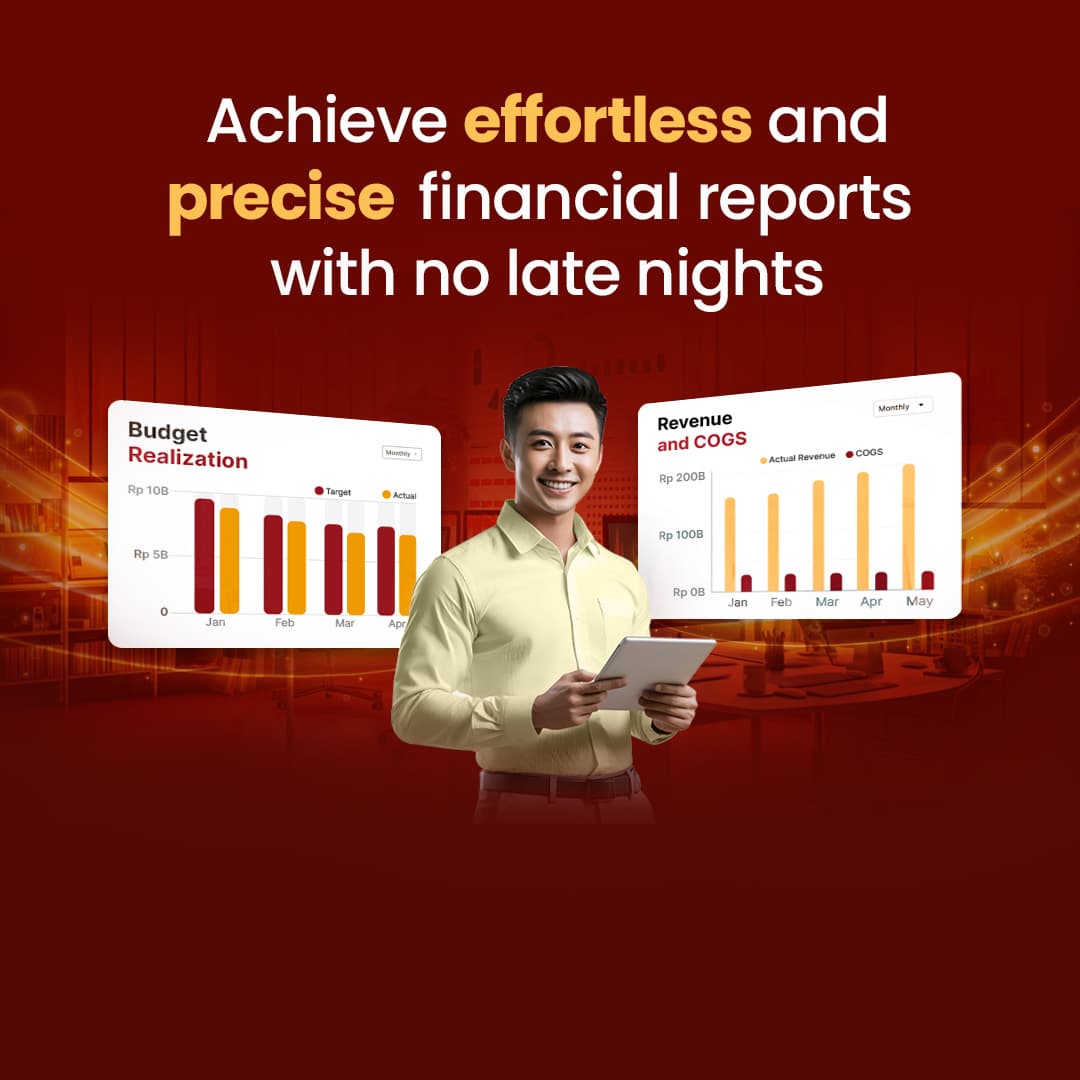Spreadsheets have been a longstanding tool in finance, offering productivity and analytical capabilities. However, their use in accounting can introduce risks and inefficiencies. A report by Ventana Research revealed that 35% of enterprise companies faced discrepancies in critical spreadsheets.
Let’s delve into why reducing spreadsheet dependency in finance is vital and examine the associated challenges. More than that, we will discuss potential solutions to address these risks and inefficiencies.
Key Takeaways
|

Table of Content:
Table of Content
The Impact on Revenue Recognition
Spreadsheets can be challenging for companies with complex revenue recognition requirements. Dealing with intellectual property or services requires meticulous tracking of changes and contract details, which can be difficult to achieve with spreadsheet-based processes. The lack of flexibility and automation in spreadsheets can lead to inaccuracies and delays in revenue recognition, posing significant risks to financial reporting.
Accounting software and financial management software provide centralized and automated solutions for revenue recognition. By collecting, tracking, and updating contract details in a dedicated system, companies can minimize confusion and errors. Automation streamlines the entire process, ensuring that revenue recognition is accurate and up-to-date. This becomes even more crucial as companies handle larger volumes of data and generate more reports.
Overcoming Spreadsheet Complications
Switching from spreadsheets to accounting software offers several benefits for revenue recognition.
- Centralized solution: Accounting software provides a centralized platform for managing revenue recognition, eliminating the need for multiple spreadsheets and reducing the risk of errors.
- Automation: With accounting software, companies can automate the entire revenue recognition process. This reduces manual effort and ensures consistent and accurate calculations.
- Data transparency: Accounting software allows for transparent tracking of revenue recognition across contracts, providing real-time visibility into performance and financial metrics.
By adopting accounting software, companies can overcome the complications of spreadsheets and ensure accurate and efficient revenue recognition.
How can migrating to an enterprise platform solution help a business improve employee productivity?
Transitioning from spreadsheets to accounting software is a strategic move for companies, especially ones in Singapore, to seek to improve revenue recognition processes. With automation and centralized data management, companies can achieve greater accuracy, reduce risks, and ensure compliance with revenue recognition standards.
Streamlining the Accounting Close Process
When it comes to the accounting close process, relying on spreadsheets can be a time-consuming and error-prone approach, especially for organizations with multiple entities. The consolidation process often involves various calculations, spreadsheet adjustments, and manual journal entries, which are prone to errors and can lead to inconsistencies in financial reporting.
To address these challenges, companies should consider shifting away from spreadsheets and adopting financial risk management or dedicated consolidation systems. These systems offer automated solutions that streamline the accounting close process and generate financial and managerial reports faster and with greater accuracy. By eliminating the reliance on spreadsheets, companies can reduce the risk of errors, improve efficiency, and save valuable time.
The Benefits of Consolidation Systems
Consolidation systems provide a centralized platform for managing financial data across multiple entities. They automate the consolidation process, ensuring that data is accurately captured and consolidated in real-time. This eliminates the need for manual data entry and reduces the risk of errors commonly associated with spreadsheets.
Furthermore, consolidation systems offer advanced features such as intercompany eliminations and currency translation, which simplify complex accounting tasks. These systems also facilitate seamless collaboration between finance teams by providing a central repository for financial data, enabling transparency and efficient communication.
Enhancing Accuracy and Compliance
By adopting consolidation systems, companies can improve the accuracy and reliability of their financial reporting. These systems allow for automated validation and reconciliation of financial data, minimizing the risk of errors and ensuring compliance with accounting standards. Additionally, consolidation systems provide an audit trail, making it easier for companies to track and monitor changes made to financial data.
In conclusion, transitioning from spreadsheets to dedicated consolidation systems can significantly streamline the accounting close process, minimize errors, and enhance the accuracy of financial reporting. By implementing these systems, companies can improve efficiency, reduce compliance costs, and gain better control over their financial operations.
Moreover, while considering the transition from spreadsheets to dedicated accounting software, it’s essential to explore pricing schemes for optimal budget planning and resource allocation. HashMicro’s accounting software, renowned for its comprehensive features, offers competitive pricing plans tailored to varying business needs, ensuring cost-effectiveness without compromising on functionality or support. To see the plans, click the image below!
Improving Time and Expense Reporting
Tracking and reporting time and expenses using spreadsheets can be a cumbersome and error-prone task, especially for businesses that work with contractors and have employees with billable hours. The limitations of spreadsheets, such as lack of controlled workflows and the potential for human error, can lead to inefficiencies, lack of confidence in the reported numbers, and time-consuming audits. To overcome these challenges, companies can leverage automation and dedicated accounting systems that streamline the time and expense tracking process.
By adopting comprehensive accounting software, businesses can eliminate the manual entry of time and expense data, ensuring accuracy and efficiency. The automation of these processes not only reduces the risk of errors but also provides detailed and timely reports, enhancing transparency and improving client satisfaction. With controlled workflows and automated calculations, companies can generate invoices with ease, saving valuable time and resources.
Implementing dedicated accounting software streamlines the time and expense reporting process, enabling businesses to focus on core activities and strategic decision-making. The transparency and accuracy offered by these systems empower organizations to manage their finances more effectively, enabling them to allocate resources wisely and maximize profitability.
In short, improving time and expense reporting gives you these benefits:
- Increased accuracy: Automation reduces the risk of human error in data entry and calculations, ensuring precise time and expense tracking.
- Enhanced efficiency: Dedicated accounting software streamlines the reporting process, eliminating manual tasks and saving valuable time.
- Improved transparency: Real-time access to detailed reports enables businesses to provide clients with accurate and transparent invoices, strengthening trust and credibility.
- Streamlined workflows: Controlled workflows ensure that time and expense tracking follow standardized processes, minimizing discrepancies and improving overall efficiency.
Elevate Your Financial Operations with an Advanced Accounting ERP Solution
Reducing reliance on spreadsheets in modern accounting significantly enhances efficiency and reduces errors. Dedicated accounting software automates processes, simplifies reporting, and leverages real-time data for informed decision-making. This transition effectively tackles challenges related to revenue recognition, accounting closure, and precise time and expense tracking.
For a business boost, consider the game-changing potential of advanced finance ERP solutions. These solutions bring automation, data analysis, and visualization capabilities that revolutionize financial operations. Embracing these advancements optimizes processes and propels business growth.
By minimizing reliance on spreadsheets and embracing a comprehensive finance ERP system, accuracy and efficiency soar while transparency increases. Its automation eradicates manual errors, facilitating quick and precise report generation and its real-time data empowers agile decision-making, steering strategies with data-driven precision. More information on this software’s features can be found in the image below.

Transitioning from spreadsheets to dedicated accounting software unlocks efficiency and error reduction. HashMicro’s leading-edge finance ERP solutions provide automated processes, simplified reporting, and invaluable real-time insights. Get to know these transformative features better with a free demo and claim the CTC Grant, offering up to a 50% subsidy, to elevate your financial management capabilities. Embrace the future of finance operations today!
Frequently Asked Questions About Spreadsheets
-
Why should companies reduce their reliance on spreadsheets in finance?
Companies should reduce their reliance on spreadsheets in finance to enhance efficiency, reduce errors, and streamline operations. By adopting dedicated accounting software, companies can automate processes, simplify reporting, and improve decision-making with real-time data.
-
What are the disadvantages of using spreadsheets in finance?
The problems of using spreadsheets in finance include the potential for discrepancies and errors, lack of flexibility in tracking changes and overseeing contract details, increased time and risk in the accounting close process, and tedious and error-prone time and expense tracking and reporting.
-
How does spreadsheet reliance impact revenue recognition?
Spreadsheet reliance can complicate revenue recognition processes, especially for companies with complex requirements. Spreadsheet-based processes lack flexibility in tracking changes and overseeing contract details, leading to inaccuracies and difficulties in keeping spreadsheets up-to-date. Adopting accounting software and financial management software offers centralized and automated solutions for revenue recognition, minimizing confusion and errors.
-
How can reducing spreadsheet reliance streamline the accounting close process?
Spreadsheets can increase the time and risk associated with the accounting close process. By eliminating reliance on spreadsheets and adopting financial risk management or dedicated consolidation systems, companies can generate financial and managerial reports faster while improving accuracy. This shift also reduces audit trails and associated compliance costs.
-
What are the limitations of using spreadsheets for time and expense reporting?
Spreadsheets can be tedious and error-prone for tracking and reporting time and expenses, particularly for businesses with contractors and employees with billable hours. They lack controlled workflows and can lead to inefficiencies, lack of confidence in the numbers, and time-consuming audits. By utilizing comprehensive accounting systems and automation, companies can streamline the time and expense process, ensuring accuracy and providing detailed, timely, and accurate invoices.

























































